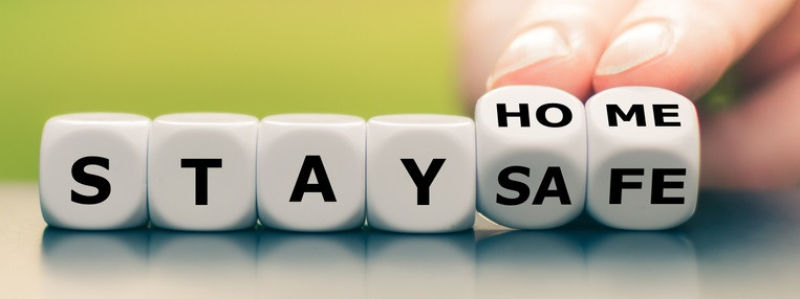The impact on mental health in the lockdown

We are well over a month into a nationwide lock down due to the coronavirus pandemic that has been declared by the World Health Organisation. This means that people are being asked to only go out if it essential – to get food, medicine, or to exercise once a day. People who absolutely need to travel for work purposes, and can’t work from home, are still able to, but most of the population are being asked to stay at home to reduce the risk of infection. This means that we are not allowed to see anyone that is not in our household, and when we are out getting food, dropping off supplies to someone who is vulnerable and requires such help, or exercising, ‘social distancing’ is required. This is a new term that we are now using in our everyday vocabulary and means that when outside, people should keep a safe distance of two metres apart from anyone who is not a member of your household.
I think that that the ability to go outside for exercise every day is a way of these restrictions allowing physical health to not be forgotten about, but for some people exercise is a way of them looking after their mental health as well. Physical activity has been found to improve mental health by managing stress and anxiety as it releases cortisol and gives the brain something to focus on, enabling a happier mood because it releases feel-good hormones, and it also helps a person to sleep better as it will makes them more tired at the end of the day.
Physical activity is not the only thing that will help with mental health though. The lockdown restrictions have shone a light on the loneliness and vulnerability many people in society experience. People who live on their own, at any age, are now experiencing very little, if any, social interaction on a daily basis. Thankfully, we do now live in a world where keeping in contact with people is better than it ever has been. Before mid-March, I had never used Skype or been part of a video chat before, but both of these have become integral parts of my everyday life. However, it could be said that nothing is better than seeing other people in person.
Is important to note that it is not just older or more vulnerable people in society who are, or will, particularly feel the impact of this global pandemic, children and young people are also being focused on. Researchers at the University of Huddersfield are already working on a joint project, being carried out in seven countries, which is designed to understand how the pandemic affects children and young people’s everyday lives. With schools currently only being open to vulnerable children and to children of key workers, many parents now also have the added task of home-schooling. Only time will tell on what the impact of these measures will be on children’s education.
Certain people within society are, of course, finding the lockdown measures more difficult, but I am sure I am right in saying that nearly everyone will be finding it difficult on some level. Perhaps this time can also be used to think about the things in life that really matter – not being able to see family and friends could focus our thoughts on what the priorities in life really should be once the restrictions are lifted.
In this pandemic, there are many things we can’t control, but there are some very important things that we can. There is a lot of information available on how to look after our mental health, one of these links is in the references below from the Every Mind Matters campaign, but the main point is that the situation we are in is only temporary – it will pass and we will be able to go back to our normal lives again.
Sarah Keeping MBPsS MSc PgDip GDip BA (Hons) Cert HE
Follow Sarah on twitter at @keepingapproach
References



